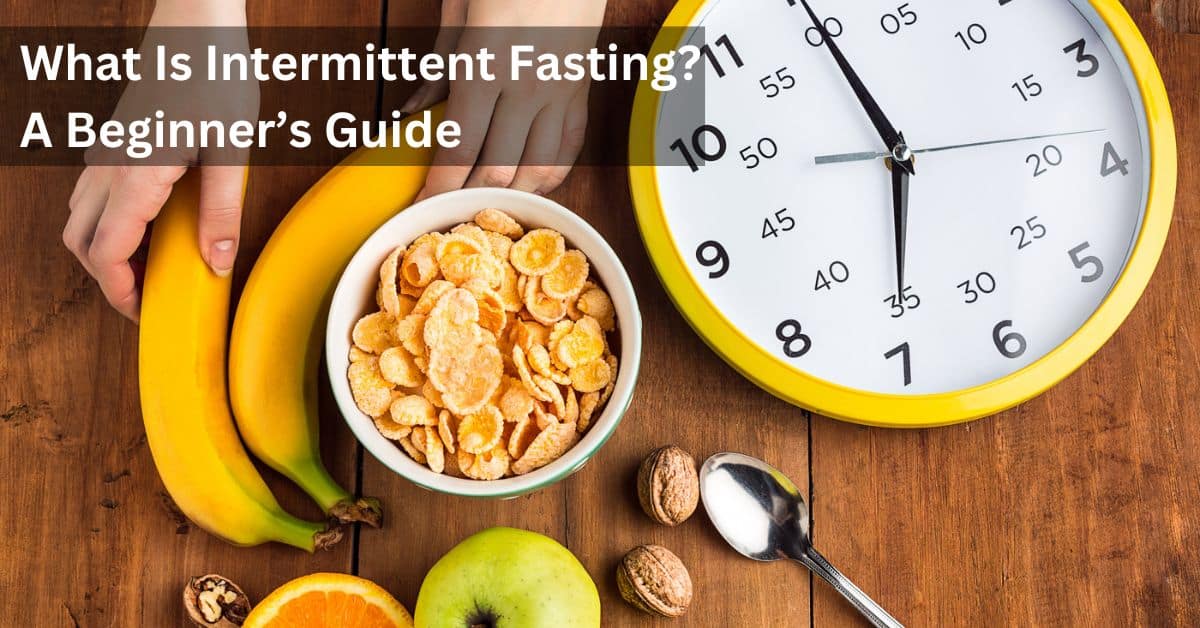Intermittent fasting (IF) is a dietary pattern that alternates between eating and fasting periods. Rather than concentrating on what you eat, it emphasizes when you eat. Instead of focusing on what to eat, intermittent fasting focuses on when to eat. It’s not a traditional diet but a timing-based approach to eating, making it easier for many people to stick to compared to restrictive meal plans. This method is known for its simplicity, potential health benefits, and effectiveness in supporting weight loss and improving overall wellness.
How Does Intermittent Fasting Work?
When you eat, your body uses that energy for immediate fuel. During fasting periods, however, your body doesn’t have a fresh energy source, so it begins to tap into stored fat. This metabolic shift can enhance fat burning and help manage insulin levels, which is why many people adopt intermittent fasting for weight management and metabolic health.
Different Methods of Intermittent Fasting
Intermittent fasting comes in several forms, so you can choose the method that best fits your lifestyle:
16/8 Method: In this method, you fast for 16 hours and eat during an 8-hour window. For instance, you might eat between 12 p.m. and 8 p.m. and fast from 8 p.m. until 12 p.m. the next day.
5:2 Method: With this plan, you eat regularly for five days a week and limit your calorie intake to about 500-600 on two non-consecutive days.
Eat-Stop-Eat: This involves fasting for a full 24 hours once or twice a week, essentially skipping two meals and then resuming normal eating.
Alternate-Day Fasting: As the name suggests, this approach alternates between eating normally one day and fasting or limiting calories the next day.
Each method has its own benefits and flexibility, allowing you to choose what works best for your schedule and goals.
The Health Benefits of Intermittent Fasting
Weight Loss and Fat Burning: Since intermittent fasting reduces the overall window for eating, it can naturally help decrease calorie intake. During fasting, your body switches to burning stored fat, which aids in weight loss.
Improved Metabolic Health: Fasting helps regulate insulin levels, making your body more efficient at processing glucose. This may reduce the risk of type 2 diabetes and other metabolic conditions.
Enhances Cellular Repair: Fasting triggers a process called autophagy, where the body removes damaged cells and regenerates new, healthier ones. This can slow down aging and reduce the risk of certain diseases.
Supports Brain Health: Intermittent fasting has been linked to improved cognitive function and may reduce inflammation that affects brain health. It could potentially lower the risk of neurodegenerative diseases like Alzheimer’s.
Better Heart Health: Regular intermittent fasting can help reduce inflammation, lower blood pressure, and decrease cholesterol levels, contributing to better heart health.
Is Intermittent Fasting Safe for Everyone?
Although intermittent fasting offers many benefits, it may not be suitable for everyone. Pregnant or breastfeeding women, individuals with certain medical conditions, or those who have had a history of eating disorders should consult a healthcare provider before starting intermittent fasting. Additionally, those who experience fatigue or discomfort during fasting should reconsider or adjust their approach.
Tips for Starting Intermittent Fasting
Choose the Right Method
Start with a simple method, such as the 16/8 plan, to ease your body into fasting without feeling overly hungry or fatigued.
Stay Hydrated
Drink plenty of water, tea, or black coffee during fasting hours to stay hydrated and suppress hunger.
Prioritize Whole Foods
When it’s time to eat, focus on nutrient-rich foods like fruits, vegetables, lean proteins, and healthy fats. These will help you feel fuller for longer and provide essential nutrients.
Be Patient
It may take some time to see results from intermittent fasting. It’s important to be consistent and give your body time to adapt to this new eating pattern.
Can You Exercise While Fasting?
Yes, many people exercise during their fasting periods. However, it’s crucial to pay attention to how your body feels. If you feel lightheaded or fatigued during exercise, consider switching to a less intense workout or adjusting your eating schedule to provide more energy.
Conclusion
Intermittent fasting is an effective and flexible approach to managing your health, especially when it comes to weight loss, metabolic health, and cellular repair. Its flexibility makes it accessible for many, but it’s important to choose a method that fits your lifestyle and listen to your body’s signals throughout the process.

